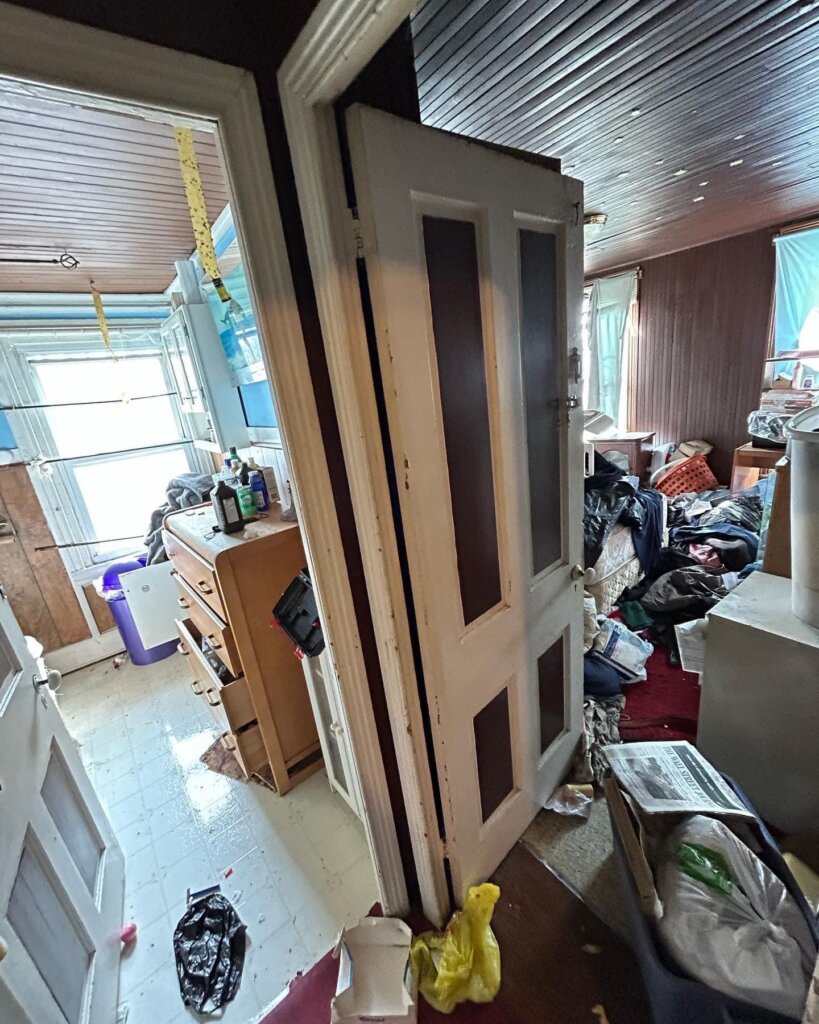Selling A House With A Tenant In Pennsylvania
Trying to sell my house with a tenant is an intimidating task.
Intimidating, but not impossible.
If you’re a landlord in Pennsylvania who is ready to sell a rental property, you might be wondering what to do if you still have tenants in place.
In fact, there are several benefits to selling a house with a tenant:
- Saving time and money
- Avoiding vacancy
- Potentially attracting investors
- And there’s more…
In this article, we’ll explore the pros and cons of selling a house with a tenant in Pennsylvania, share tips for navigating the process, and answer some frequently asked questions.
- If you own a tenant-occupied house and you need to sell it, then you’re in the right place. However, it’s not as easy as selling a non-occupied property! You’ll learn why and how it’s different than a traditional sale.
- Tenant-occupied properties in Pennsylvania can be difficult to maintain and sell to another buyer. There are some PA-specific things you need to be aware of as a landlord who is interested in selling their rental property.
- In order to “sell my house with a tenant”, there might be some things you can do to improve the offer and appeal to the buyer and the tenant. This could literally save you thousands of dollars.
Table of Contents
- What defines tenant-occupied property in Pennsylvania?
- What are the benefits of selling a house with a tenant in Pennsylvania?
- What are the drawbacks of selling a house with a tenant in Pennsylvania?
- How to sell a house with a tenant in PA
- Who buys tenant-occupied property?
- How do Pennsylvania laws impact the sale of tenant-occupied rental property?
- Selling tenant-occupied homes – FAQs
What Defines Tenant-Occupied Property in Pennsylvania?
When it comes to Pennsylvania landlord-tenant law, understanding what defines a tenant-occupied property is critical.
In Pennsylvania, a property is considered tenant-occupied if a tenant has signed a lease agreement and has taken possession of the property.
This means that the tenant has exclusive rights to occupy the property and can legally prevent the landlord from entering the premises without notice or permission.
Under Pennsylvania law, a lease agreement creates a tenancy, whether it is oral or written. Once a tenant has taken possession of the property, they have the right to live in the property and use it for their purposes. The tenant must also pay rent to the landlord on time and in accordance with the lease agreement.
If a landlord wishes to sell a tenant-occupied property, they must ensure that they follow Pennsylvania’s landlord-tenant laws.
What does that mean?
Let’s use an example:
Landlords must provide the tenant with adequate notice before entering the property for any reason, including showings. That is one part of the law.
Additionally, landlords must respect the tenant’s right to privacy and cannot disclose any information about the tenant without their consent. That’s another part.
It is important to note that if a tenant-occupied property is sold, the tenant has the right to remain in the property until the end of the lease agreement.
The new owner of the property must honor the terms of the lease agreement and cannot evict the tenant until the lease expires, unless there is a breach of the lease agreement.
Therefore, it is crucial for landlords to communicate with their tenants about the selling process and work with them to make the process as smooth as possible.
What Are The Benefits Of Selling A House With A Tenant in Pennsylvania?
There could be hundreds of different benefits for a landlord interested in selling their rental property. Typically, landlords are investors and much of the benefit they receive from rental property is in the form of returns or profit.
Some of the most common benefits of selling a house with a tenant in Pennsylvania are:
Saving Time and Money: One of the biggest benefits of selling a house with a tenant is saving time and money. Since the tenant is already in place, you don’t have to spend time or money on marketing the property or preparing it for showings. You also don’t have to worry about paying for utilities or other expenses while the property is on the market.
Attracting Investors: Selling a house with a tenant can also attract investors who are looking for income-generating properties. Investors are often looking for properties that are already producing rental income, and having a tenant in place can make the property more attractive to them.
Potential for Higher Sale Price: If your tenant is paying above-market rent, you may be able to sell the property for a higher price. This is because the buyer will be taking over a property with an already established income stream.
Less Stressful for Tenant: Selling a house with a tenant can be less stressful for the tenant than having to move out before the sale. It allows the tenant to continue living in the property while the sale is taking place, which can be especially beneficial if they have a long-term lease in place.

No Need to Find a New Tenant: When you sell a house with a tenant in place, you don’t have to worry about finding a new tenant or paying for any repairs or upgrades to the property to attract new tenants. This can be helpful if you’re in a rush to sell the property and don’t have the time or resources to invest in finding new tenants.
Steady Income Stream: One of the benefits of selling a house with a tenant is the steady income stream that comes with it. Since the tenant is already in place and paying rent, you can start generating income right away after the sale is complete.
Avoiding Vacancy: Another benefit of selling a house with a tenant is avoiding vacancy. A vacant property can be a drain on your finances, as you still have to pay for utilities, maintenance, and other expenses. By selling the property with a tenant in place, you can avoid these costs and start generating income right away.
What Are The Drawbacks Of Selling A House With A Tenant In Pennsylvania?

As good as it is to own rental property and be in a position to sell it, there are also other factors that may make the sale of your rental property difficult or problematic.
The first drawback is really around accessing the property for showings. Selling a house with a tenant means scheduled showings, no impromptu walkthroughs. You will need to coordinate with your tenant to find a time that works for both of you, and this can be difficult if they have a busy schedule or are not interested in cooperating. Which leads me to my next point – Tenant’s Rights.
I could go on about tenant’s rights in Pennsylvania (and I will below). Pennsylvania law gives tenants certain rights, and you will need to be aware of these when selling your property. For example, your tenant has the right to refuse entry to your property if you do not provide proper notice. This can make it difficult to show your property to potential buyers.
When you sell a house in Pennsylvania with a tenant, you also may not be able to make repairs or improvements that you would normally make when selling a vacant property. This is because you need to consider your tenant’s rights and may not be able to access the property as easily as you would like.
Some buyers may be hesitant to purchase a property with a tenant in place because of this, which could result in lower offers. This is especially true if the tenant is paying below-market rent, as the buyer may not be able to charge higher rent until the lease is up. They are locked in!
Selling a house with a tenant requires more time and effort than selling a vacant property. You will need to work with your tenant to schedule showings, provide proper notice, and coordinate with your real estate agent to ensure that everything goes smoothly.
Overall, while selling a house with a tenant can have its benefits, it can also be more challenging than not. It’s critical to consider these potential drawbacks before making a decision.
How To Sell A House With A Tenant In Pennsylvania
Kudos to you! You’ve poured over the pros and cons of selling a house with a tenant in Pennsylvania and you ultimately decided that you are up for the challenge!
Before you jump in head first, give yourself some time to structure and organize your approach. There are several steps you can take to make the process as smooth as possible. Here are detailed instructions to help you sell your property with a tenant in place:
- Communicate with Your Tenant: It is crucial to communicate with your tenant and inform them of your plans to sell the property. Explain the selling process and how it will affect them, including potential changes in rent, showing schedules, and the eventual move-out date.
- Provide Adequate Notice: The tenant has the right of landlord notice to entry by the landlord themselves or their agents. Provide written notice to the tenant at least 24 hours before any showings or inspections.
- Offer Incentives: Consider offering incentives to your tenant, such as reduced rent or help with moving expenses. This can help keep your tenant cooperative and improve your chances of a successful sale. The amount of incentive varies and depends on the state of the housing market.
- Consider Timing: Timing is crucial when selling a house with a tenant. Have you checked the current state of the housing market or economy? Try to schedule showings and inspections at a convenient time for the tenant, such as on weekends or in the evenings. so that they are not inconvenienced.
- Highlight the Property’s Investment Potential: Emphasize the property’s investment potential to prospective buyers. Highlight the rental income and the potential for future rental income, as well as any other attractive features of the property.
- Be Honest About the Tenant: Be honest with potential buyers about the tenant and their lease agreement. Provide information on the tenant’s payment history, lease terms, and any other relevant details.
- Be Respectful of the Tenant’s Privacy: Respect the tenant’s privacy and ensure that their personal belongings are not damaged or disturbed during showings or inspections.
- Find the Right Buyer: Some landlords hire a real estate agent with experience selling rental properties – they think this will be enough to navigate the sale. In our experience, going directly to the right buyer is quicker, easier and less risky. In your market, look for a reputable cash buyer or local investor to give you an offer.
- Provide Notice of Lease Termination: If the tenant’s lease is expiring soon, provide notice of lease termination or a “lease termination letter” in accordance with Pennsylvania law. This will give the tenant ample time to find a new rental property and avoid any legal disputes.
- Keep the Property Clean and Maintained: Keep the rental property clean and well-maintained throughout the selling process. This will make a positive impression on potential buyers and increase the value of the property.
- Offer Rent-to-Own: Consider offering rent-to-own as an option for potential buyers. This can help attract buyers who may not qualify for traditional financing and increase your chances of a successful sale.
- Follow Pennsylvania Landlord-Tenant Laws: Follow Pennsylvania landlord-tenant laws throughout the selling process. This will help protect your legal rights and avoid any potential disputes with your tenant.
- Be Patient: Selling a house with a tenant can be a challenging process. Be patient and prepared for potential setbacks, such as delayed showings or inspections.
- Consider Selling to the Tenant: Consider selling the property to the tenant if they are interested in purchasing it. This can simplify the selling process and avoid potential disputes with the tenant.
- Get Legal Advice: If you are unsure about any legal issues related to selling a house with a tenant, seek legal advice from an experienced attorney. They can provide valuable guidance and help you avoid any legal pitfalls.
Who Buys Tenant-Occupied Property?
There are a few reasons why a landlord may prefer to sell their tenant-occupied property to a cash buyer rather than list it on the Multiple Listing Service (MLS) with a real estate agent.
Firstly, selling to a cash buyer can be a faster and more straightforward process than listing the property on the MLS. A cash buyer can often close the sale much more quickly than a traditional buyer who needs to secure financing. This can be beneficial to a landlord who is looking to sell the property quickly and avoid the hassle of dealing with lengthy closing processes or potential financing issues.
Additionally, selling to home buying company can eliminate the need to evict tenants or navigate any potential tenant-related legal issues. If a landlord lists their tenant-occupied property on the MLS, they may need to work with a real estate agent to coordinate showings and potentially work around the tenant’s schedule. This can be a complex and time-consuming process, especially if the landlord is dealing with difficult tenants or an eviction notice.
Finally, selling to a cash buyer can be a more attractive option for a landlord who is looking for a hassle-free sale with minimal transactional costs. Working with a real estate agent can come with commission fees and other costs associated with the sale, whereas selling to a cash buyer can result in a quick and easy sale with no additional expenses.
Overall, for a landlord looking to sell their tenant-occupied property quickly and without the hassle of navigating tenant-related issues or transactional costs, selling to a cash buyer may be a highly appealing option.
We Buy Homes In Pennsylvania
Pennsylvania Tenant Rights When Selling a House
As a landlord in Pennsylvania looking to sell a property that is currently occupied by tenants, it is important to be on top of the legal rights of your tenants. These laws exist to protect tenants and ensure that they are treated fairly during the sales process. Understanding these rights can help you navigate the process and avoid any legal issues that may arise. Here is an exhaustive list of tenant rights in Pennsylvania when selling a property for 2023:
| Pennsylvania Tenant Right | Description |
| Right to Receive Notice | A tenant has the right to receive a written notice from the landlord before the property is put up for sale. Landlords should notify tenants and include the proposed sale date, the name and contact information of the new owner, and the tenant’s rights during the sale process. |
| Right to Access | The tenant has the right to access their rented property during reasonable hours to prepare for and facilitate showings to potential buyers. The landlord must provide reasonable notice and obtain the tenant’s consent before arranging showings. |
| Right to Privacy | A tenant has the right to privacy during the sale process. A landlord cannot show the property without the tenant’s consent or enter the property without giving reasonable notice to the tenant. |
| Right to Refuse Entry | A tenant has the right to refuse entry to potential buyers or their agents if the tenant finds the visit intrusive or the timing is inconvenient. However, the tenant must provide a valid reason for refusing entry. |
| Right to Reasonable Notice | The tenant has the right to receive reasonable notice before any major repairs or renovations are carried out during the sale process. The tenant also has the right to know when the repairs will be made, how long they will take, and how they will affect the tenant’s use of the property. |
| Right to Terminate the Lease | A tenant has the right to terminate the lease if the landlord decides to sell the property during the lease term. The tenant can do this by providing written notice to the landlord, and the lease will terminate after 30 days. |
| Right to Sublease | A tenant has the right to sublease the property during the sale process, as long as the lease agreement permits it. However, the tenant must obtain the landlord’s consent before subleasing the property. |
| Right to Security Deposit | A tenant has the right to receive their security deposit back at the end of the lease term, as long as they have met all the lease requirements. The landlord cannot use the security deposit to cover any expenses related to the sale of the property. |
| Right to Notice of Eviction | A tenant has the right to receive written notice if the new owner decides to evict the tenant after the sale is completed. A minimum of 30-day notice before the eviction date is required and it must state the reason for the eviction. |
| Right to Receive Rent | A tenant has the right to receive rent payments from the new owner if the property is sold during the lease term. The new owner must honor the lease agreement and cannot increase the rent or change any of the terms of the lease without the tenant’s consent. |
| Right to Quiet Enjoyment | A tenant has the right to peaceful and quiet enjoyment of the property during the sale process. The new owner cannot interfere with the tenant’s use of the property or harass the tenant in any way. |
| Right to a Livable Property | A tenant has the right to a livable property during the sale process. The new owner cannot neglect to make necessary repairs or renovations that affect the tenant’s use of the property. |
| Right to a Properly Executed Lease | A tenant has the right to a properly executed lease that is binding and enforceable during the sale process. The new owner must honor the lease agreement, and the tenant’s rights under the lease cannot be diminished or eliminated without the tenant’s consent. |
| Right to Legal Assistance | A tenant has the right to seek legal assistance if they believe their rights have been violated during the sale process. A tenant can consult with an attorney to understand their rights and options, and to seek legal counsel. |
| Right to Return of Security Deposit | After the lease term ends and the tenant vacates the rental property, they have the right to the return of their security deposit within 30 days. The landlord must return the deposit in full or provide an itemized list of any deductions for damages or unpaid rent. |
| Right to Proper Notice of Entry | The tenant has the right to proper notice of entry by the landlord or their agents. The landlord must provide written notice at least 24 hours before entering the rental property for any reason other than an emergency. |
| Right to Due Process | The tenant has the right to due process in the event of an eviction notice. The landlord must follow the proper legal procedures, including filing the necessary paperwork with the court, providing the tenant with proper notice, and obtaining a court order before the eviction can take place. |
| Right to Reasonable Rent Increases | The tenant has the right to reasonable rent increases during the lease term, as long as they are consistent with market rates and allowed by the lease agreement. The landlord cannot raise the rent more than once per year and must provide written notice of the increase. |
| Right to Habitability | The tenant has the right to a habitable rental property. The landlord is responsible for making necessary repairs to keep the property safe and sanitary, including repairing leaky pipes, fixing broken windows, and ensuring proper ventilation. |
| Right to Reasonable Accommodations | The tenant has the right to reasonable accommodations for any disability or medical condition that affects their ability to use and enjoy the rental property. The landlord must provide necessary accommodations, including installing wheelchair ramps, providing designated parking spaces, or allowing a service animal on the property. |
| Right to Freedom from Retaliation | The tenant has the right to freedom from retaliation by the landlord for exercising their rights under the lease agreement or state law. The landlord cannot raise the rent, decrease services, or take any other adverse action against the tenant in response to a complaint or request for repairs. |
| Right to Refuse Consent to Entry | The tenant has the right to refuse consent to entry for any reason, including personal preference or safety concerns. The landlord must respect the tenant’s wishes and cannot retaliate against them for refusing entry. |
| Right to Unconditional Lease Renewal | The tenant has the right to unconditional lease renewal at the end of the lease term, as long as they have not violated any terms of the lease agreement. The landlord cannot refuse to renew the lease based on the tenant’s race, color, religion, sex, national origin, disability, or familial status. |
| Right to Reasonable Move-Out Charges | The tenant has the right to reasonable move-out charges, including cleaning fees and repair costs, after vacating the rental property. The landlord cannot charge excessive fees or make unreasonable deductions from the tenant’s security deposit. |
In conclusion, these are the tenant rights in Pennsylvania when selling property. As a tenant, it is crucial to understand your rights and responsibilities under the lease agreement and state law. If you believe your rights have been violated, seek legal assistance or contact the Pennsylvania Department of Labor and Industry for more information.
Conclusion – Sell My House With A Tenant Pennsylvania
Selling a house with a tenant in Pennsylvania can be a complex and challenging process, but it can also be a smart financial decision. By understanding the legal requirements, potential risks, and benefits of selling a house with a tenant, landlords can make informed decisions and maximize their return on investment.
When considering selling a house with a tenant, it is essential to work with a knowledgeable and experienced team of professionals who can help guide you through the process and ensure that you comply with all relevant laws and regulations. With the right approach, selling a house with a tenant can be a profitable and rewarding experience for landlords in Pennsylvania.
FAQs For Selling Tenant-Occupied Property In PA
Do I need to give my tenant notice before selling my house in Pennsylvania?
Yes, you are required to provide written notice to your tenant at least 60 days before the termination of their lease agreement or the sale of the property.
Can I sell my house with a tenant in Pennsylvania without their consent?
Yes, you can sell your house with a tenant in Pennsylvania without their consent. However, you must provide written notice to the tenant at least 60 days before the termination of their lease agreement or the sale of the property. This can be done through a landlord letter to notify.
Can I increase the rent on my tenant if I am planning to sell my house in Pennsylvania?
No, you cannot increase the rent on your tenant if you are planning to sell your house in Pennsylvania. Your tenant is entitled to the same rent throughout their lease agreement, even if the property changes ownership.
Can I evict my tenant if I am planning to sell my house in Pennsylvania?
No, you cannot evict your tenant if you are planning to sell your house in Pennsylvania. Your tenant is entitled to live in the property for the duration of their lease agreement, even if the property changes ownership.
Do I need to disclose that my house has a tenant when selling in Pennsylvania?
Yes, you are required to disclose to potential buyers that your house has a tenant when selling in Pennsylvania. This information should be included in your property listing and disclosed during the home inspection process
The findings and information in this article are focused on Pennsylvania, however, it is applicable in many locations nationwide!
More Blog Articles You Might Enjoy

Author: Doug Greene
Doug Greene is no stranger to all topics real estate and business. For over a decade he has been educating others and helping homeowners navigate difficult, complex problems with their property.
His work has been featured in the NY Times, Washington Post, Realtor.com, Apartment Therapy, HomeLight, Homes & Gardens and many more.


 Fact Checked
Fact Checked


